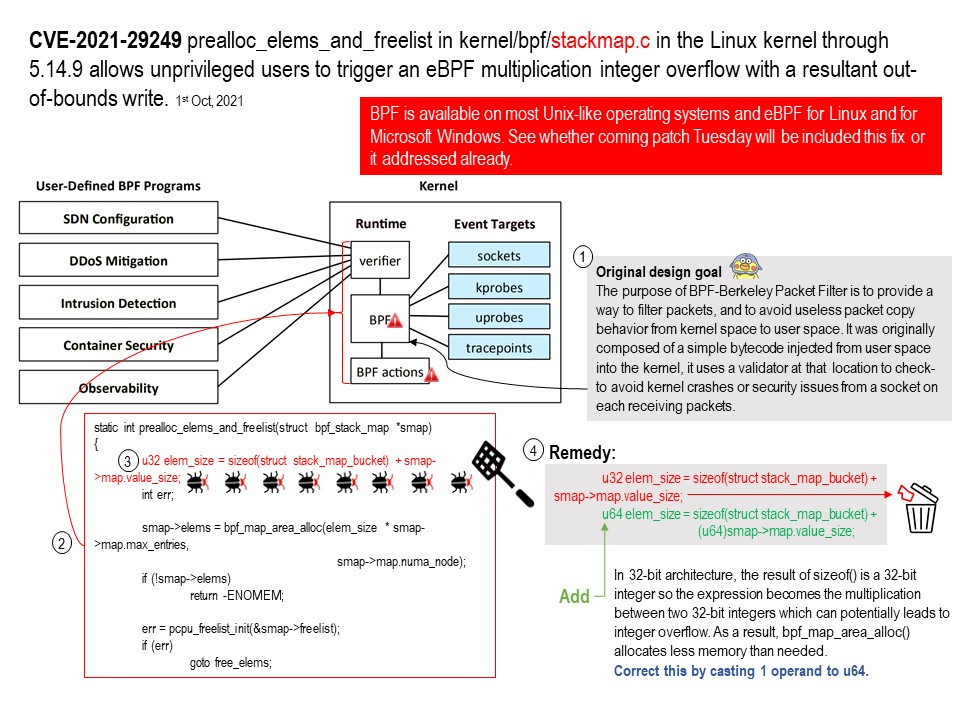
Preface: BPF is available on most Unix-like operating systems and eBPF for Linux and for Microsoft Windows. In addition, if the driver for the network interface supports promiscuous mode, it allows the interface to be put into that mode so that all packets on the network can be received, even those destined to other hosts.
Background: The Berkeley Packet Filter (BPF) is a technology used in certain computer operating systems for programs that need to, among other things, analyze network traffic (and eBPF is an extended BPF JIT virtual machine in the Linux kernel). It provides a raw interface to data link layers, permitting raw link-layer packets to be sent and received.
Vulnerability details: CVE-2021-29249 prealloc_elems_and_freelist in kernel/bpf/stackmap.c in the Linux kernel through 5.14.9 allows unprivileged users to trigger an eBPF multiplication integer overflow with a resultant out-of-bounds write.
In 32-bit architecture, the result of sizeof() is a 32-bit integer so the expression becomes the multiplication between two 32-bit integers which can potentially leads to integer overflow. As a result, bpf_map_area_alloc() allocates less memory than needed.
Remedy: Correct this by casting 1 operand to u64 (See attached picture for details).